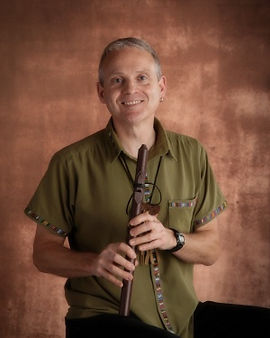
Celebrating the Musical and Cultural Expressions of the World's Indigenous and Folk Flute Traditions
2024 Classroom Presentations
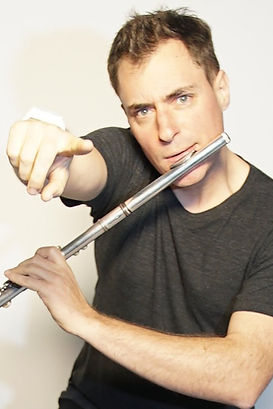
"Learning to Beatbox with the Flute"
We will explore the sounds of beatbox in an interactive class, and you will learn how to make these wild noises. Beatbox is the art of extended techniques of articulation, specifically tailored to sound like drum instruments. The focus will be on the three staple sounds (high hat, rim shot, and bass drum kick), how to organize these into beats, and how to incorporate them into your playing no matter what instrument you play. Bring your instrument!

"Melodies of Japan"
Why does Japan have such a specific sound? How did it develop? In this course, you will learn about the melodies of Japan. From gagaku (ancient court music) to common songs in the Edo period, hear and experience them not only through word but through live example from performer Shawn Tairyu Head who will play examples of these melodies on voice, hitoyogiri, and shakuhachi.
Shawn will offer private shakuhachi lessons at the convention. Please contact him directly before or at the event to arrange private lessons.

"Creativity with Looping and Effects Pedals"
This interactive workshop with Dr. Melissa Keeling will cover what gear you need to get started playing any flute with effects pedals, how to set up the equipment, demonstrations of various effects, and a quick lesson on looping. This session goes beyond the gear itself to explore how effects can be used creatively to expand the capabilities of your flute. Dr. Melissa Keeling will walk-through her process of writing and arranging music for effects pedals and loopers, and attendees will have the opportunity to try the pedals in various contexts. While she plays silver flute, the concepts can be applied to any instrument!
Dr. Meliss Keeling will offer private flute lessons at the convention. Please contact her directly before or at the event to arrange private lessons.

"Introduction to the
Music of Colombia"
Colombia, the only country in South America with access to both the Pacific and Atlantic oceans, is also divided by the Andes mountains. This geography holds stories of many musics: the music of the indigenous, the ones brought by the Spaniards, and the musics that came from Africa. In this presentation, Dr. Daniel Pardo will introduce the music and flutes used in styles from the Pacific jungle and San Basilio de Palenque (first free town of the Americas), to high in the mountains where the nation's capital was founded.
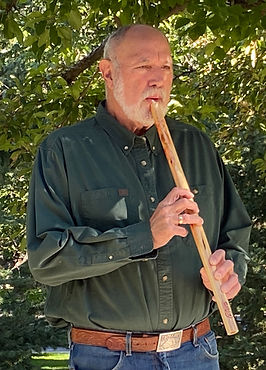
In this presentation, Dr. Stanley Loftness will discuss the different style of embouchures on various rim-blown flutes; the different playing styles; the various bore sizes and their effect on tone and playability; finger hole parameters; and bore construction. There will also be a question-and-answer period during this session.
"Considerations and Consternations in
Making an Ancestral Puebloan Flute"
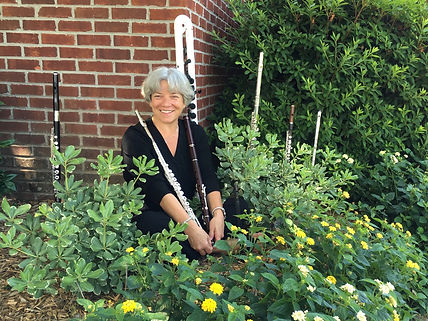
"Everything Essential to be Successful on Irish Flute
and Whistle"
Dr. Andra Bohnet's class will cover how to sound "authentic" on Irish flute and whistle. Everything from dance tune types, finger ornamentation, tone quality, instrument makers, and more will be packed into this session. Bring an instrument that plays in concert pitch! Instrumental participation is optional. Sit back, relax, and listen to this vibrant presentation!

"Bansuri: The Bamboo Flute of Northern India"
In this presentation, Eliyahu Sills details raga and stylistic approaches to playing bansuri in the Northern Indian tradition, as taught by G.S. Sachdev.

"Breathing, Breath Control, and Vibrato"
Our flutes are our musical voice, transforming the air that we breathe into melodies, thoughts, emotions, and stories. Yet, for many of us, we struggle to “get enough air,” “blow in tune,” or develop a natural, expressive vibrato. In this participatory class, we will de-mystify the art of breathing “on demand,” learn how to practice breath control (for both volume and pitch), and learn how to develop a vibrato that sounds intentional, smooth, controlled, and suited to the song style. Bring a Native American-style flute in A, or any other type of flute that can play in C Major/A minor to participate.
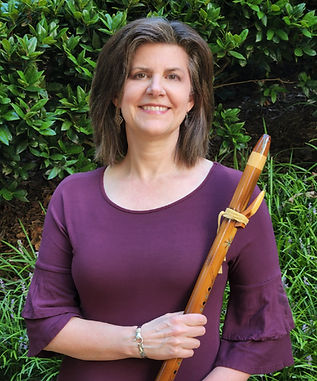
"Learning to Read Nakai TABlature"
Have you ever wanted to play written music on your Native American-style flute, but do not know how to begin? Or, have you ever wanted to write your own songs into sheet music format without drawing flute pictorials with the finger hole representations? Learning to read Nakai TABlature may open some musical adventures for you that you did not expect. In Jamie Empert's workshop, you will gain an understanding of how Nakai TABlature works, so that you can begin to play written music. If you have no experience reading music on a staff in western notation, we will go over the basics of what all of these symbols and notes mean too. Since this can be a lot to learn in just a one-hour workshop, you will go home with some great resources that will help you to continue your learning and practicing at home. We will do hands-on practice and learn to play a song by the end of the workshop. If you have a flute, bring it along so we can practice together.

Pueblo People have rich musical traditions that date back thousands of years. Several types of musical instruments have been in continuous use and others have been long forgotten. Marlon Magdalena's presentation examines both through the utilization of replicas derived from the archaeological record and instruments known to still be used.
"Indigenous Musical Instruments of the
American Southwest"

"Structured Freedom: Transforming
Your Flute Improvisations"
Upgrade your improvisational skills in this immersive workshop focused on transforming your spontaneous playing from aimless wandering into a more structured and impactful performance.
In this workshop, you will learn how to incorporate just enough structure into your improvisation to create captivating and fresh musical expressions every time. By alleviating the pressure to constantly impress your audience, these techniques allow you to play with greater confidence and creativity.
www.horizonsflutestore.com
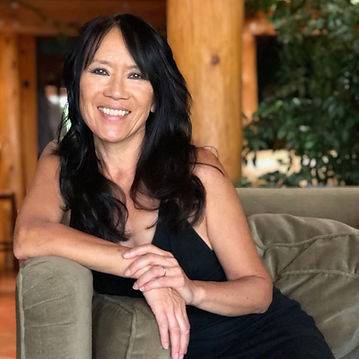
"Global Flutes:
Presentation and Discussion"
Suzanne Teng will give a demonstration and presentation on many of her core world flute collection. She will provide ample time for a question-and-answer session, where she will cover topics such as composing, performing, recording, and creating a career with these flutes.

"The Three Branches of the Ney:
Persian, Turkish, and Arabic"
A mix of musical demonstation and discussion, Eliyahu Sills will share some of the unique qualities of the three branches of the ney (nai/nay): Persian, Turkish, and Arabic. We will explore the different qualities of these flutes and the different traditions they embody, as well as how they affect us as musicians and listeners.
Each of these musical traditions approach sound, breath, and phrasing differently, and each can invoke different states of being. All of these traditions understand the flute as instruments of spiritual understanding.

Afternoon Lecture/Recital: “The Cuban Charanga and Latin-Style Flute Improvisation: History and Workshop with La Familia
Faulkner-Valiente
If you have ever wanted to be a rock star, or front an exciting dance band, then you want to know more about "charanga!" A charanga is a Cuban dance band that includes a Latin rhythm section, strings, and, most importantly, the flute as the featured melodic and improvising instrument. Charangas have existed at least as long as American jazz, and they gave birth to many of the most important Latin dance crazes of the 20th and 21st centuries, including the mambo, the chachacha, the pachanga, and timba.
Join flutist Dr. Jessica Valiente and her family in live performance, as they give you an overview of what this music sounds like. Get out your flutes and try your hand at some introductory Cuban-style improvisation with La Familia backing you up!
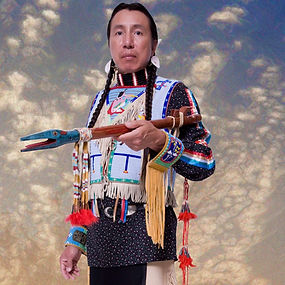
"The Indigenous Flute and the Meadowlark"
Bryan Akipa will present a classroom session detailing the Indigenous scale and the meadow lark’s song, as understood culturally and through digital composition. The Indigenous scale will be explained through music theory. The meadow lark’s melody is used to compose your song with a group performance. Bryan will present a way to unlocking the Indigenous flute’s secrets. “The Sweet Grass Prairie Meadow Lark” song will be demonstrated.
